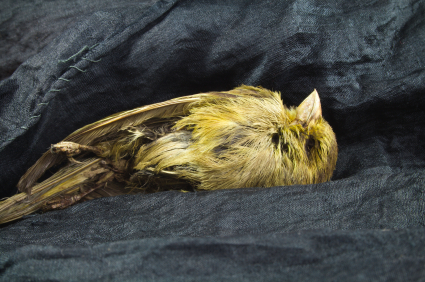Study: Hydrofracking sickening animals, people


Drilling for natural gas by hydrofracturing, or "fracking," has proven potential to contaminate groundwater or even cause earthquakes. Now, a Cornell University professor has published a study concluding that the practice has been harmful to wildlife and might sicken people.
Prof. Robert Oswald's paper, titled, ""Impacts of Gas Drilling on Human and Animal Health," was published in the January issue of New Solutions: A Journal of Environmental and Occupational Health Policy, where it will be peer-reviewed.
The research is meaningful, because wildlife is the proverbial ‘canary in the coal mine' for human health, the researchers said. The most alarming case examined arsenic poisoning in a child, which the study attributed to shale grilling activities. The researchers cautioned, "Without rigorous scientific studies, the gas drilling boom sweeping the world will remain an uncontrolled health experiment on an enormous scale."
It also compared the hydrofracking industry's response to health claims to the tobacco's industry's denial that cancer causing carcinogens were in cigarettes and noted that most states do not even require energy companies to disclose what chemicals are being used in the process.
Natural gas is being eyed as a more economical substitute for crude oil, which has experienced price spikes in recent months. Government leaders - even President Obama -have called for expanded natural gas drilling.
The Environmental Protection Agency has uncovered a toxic brew that fouled an aquifer at one site in Wyoming, and hydrofracking companies admitted to pumping diesel fuel into the ground during the Bush years. Researchers at Duke University have also accused the industry of stonewalling with contamination data.
Oswald and his team examined 24 cases of sickened animals across six different states. Birds, cats, chickens, cows, deer, goats, horses, koi, and even llamas exhibited signs of reproductive problems. 17 cows died of unknown causes within an hour in one case in Louisiana.
Other symptoms were upper respiratory issues, burning of the eyes, nosebleeds, diarrhea, vomiting, rashes, headaches and neurological problems, according to the Cornell Daily Sun's Bob Hackett.
"What I suspect is that if I follow these cases long enough I am going to start to see reproductive effects in people too," said Michelle Bamberger, a veterinarian independent of Cornell told the Sun. Oswald concluded that hydrofracking would be an unsafe practice until public health is taken into consideration. He suggested monitoring groundwater before and after drilling activities begin.
There is no doubt that natural gas drilling is necessary given America's hunger for energy. The U.S. has become the world's largest natural gas producer of dry natural gas, so it's also an import economic activity.
So is banking. Credit is necessary for economic development, and the consequences of banks run amuck effects all our lives. If the banks are regulated (for now), why aren't hydrofracking operations? There's no reason why the public should tolerate faulty concrete when the health consequences are so high. The industry should prove that it can drill safely; we shouldn't have to prove otherwise.
Related on SmartPlanet:
- EPA: hydrofracking may have tainted Wyoming groundwater
- Ohio: frackers caused earthquakes
- Fracking triggered British earthquakes
- Toxic fracking fluids revealed in Congressional report
- There’s no fracking way polluters won’t be bad actors
- Hydro-frackers to EPA: We used diesel - tough
- Controversial mining practice may return to the Empire state
- Scientist: gas industry is withholding hydro-fracking contamination data
- Marcellus shale fail - estimates of natural gas reserves were overstated
- Hydro-frackers to EPA - ‘tough, we used diesel’
This post was originally published on Smartplanet.com